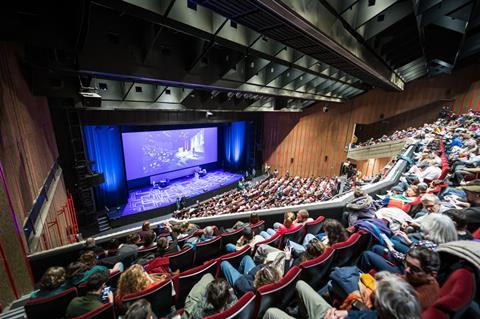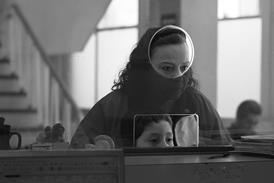
The future of the Clermont-Ferrand International Short Film Festival hangs in the balance following a budget cut from its biggest funder.
The Auvergne-Rhône-Alpes regional council has reduced the festival’s annual funding from €210,000 to €100,000 for the 2023 financial year.
The decision comes amidst other significant cuts to the cultural sector across the region, with festivals such as Plein La Bobine, a popular local event dedicated to young film audiences, also receiving reduced subsidies.
According to Clermont-Ferrand, the €110,000 budget cut puts it in a “dangerous situation which could, in the short term, sign the end of the festival and our association.”
Established in 1979, Clermont-Ferrand is generally regarded as the biggest event dedicated to short films in the world. In France it is second only to Cannes in terms of audience size; the 2023 edition, which ran January 27 - February 3, had 160,000 cinema admissions. Previous attendees of the festival include Denis Villeneuve, Chloé Zaho, Thomas Vinterberg, François Ozon, Gaspar Noé and Claire Denis.
A short film market was added in 1986 and – in 2023 - welcomed 3,900 accredited professionals with representatives from buyers, distributors and sales agents including the likes of Cannes, Mubi, Toronto IFF, Canal+, arte, You Tube and Vimeo.
Julie Rousson, general delegate of Clermont-Ferrand ISFF, explained to Screen why the shortfall in funding puts the festival in dire situation.
“We went into the 2023 edition of the festival with no indication that our funding would be cut and budgeted accordingly. The vice-president in charge of cultural affairs called our president after the festival, letting him know we will only receive €100,000 this year,” said Rousson. ”The missing money represents eight percent of our total budget. While that might sound problematic but not dire, the missing €110,000 has already been allocated and we will be driven into a deficit. It would be our second deficit after one in 2022 (caused by the implementation of Covid measures and less ticket income) and, in those conditions, we will not be able to complete the production for our next festival edition successfully.”
The Clermont team are still at a loss as to why the funding has been cut so drastically.
“We haven’t had real dialogue with the Region about this cut,” explained Rousson. “Since we found out, we tried to alert our elected representative about the consequences of this decision, but we haven’t heard anything, The only ones who have the answer is the Region itself.”
Whilst the situation is currently difficult, industry support has been swift: “We have received the support of numerous professional organizations, directors, actors and – of course - our audience,” said Rousson. “François Ozon tweeted his support, Gilles Jacob (former president of Cannes) has suggested some ways to financially support our festival. Several parallel sections of Cannes have reached out to us to ask how they can make room for us to make a statement during the festival. Every single reaction and expression of support is important. “
“We are working now on the next steps. Cannes will be a time to stand and speak to the industry.”
Aside from the annual festival and market, the team at Clermont-Ferrand provide a year-round programme of screenings and training in the region and also maintain an archive of more than four decades worth of short film history at La Jetée, their office based in Clermont-Ferrand.
According to an economic impact study conducted in 2019, the festival brings €11 million of direct economic benefit to the region.
























No comments yet